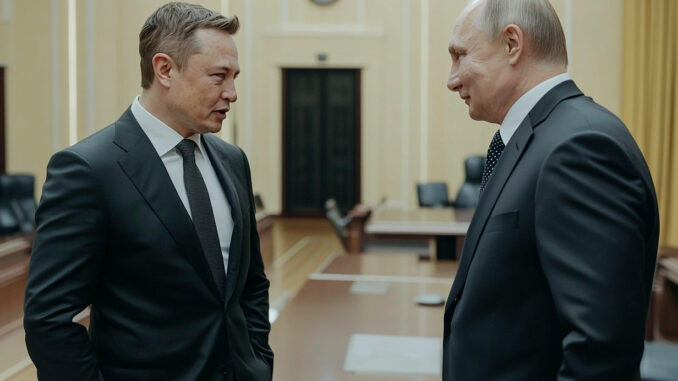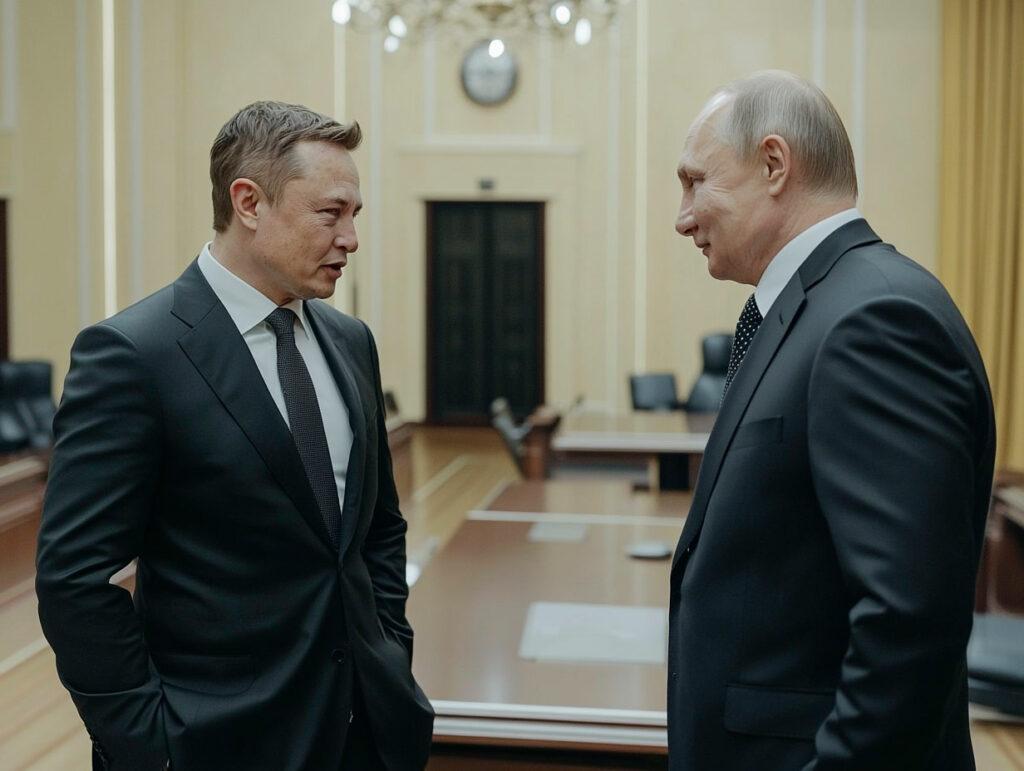
NASA’s Bill Nelson expresses concern over reports of regular exchanges between Elon Musk and Vladimir Putin, citing national security issues.
Bill Nelson, Administrator of NASA, has expressed concern over reports of repeated discussions between Elon Musk and Russian President Vladimir Putin. These exchanges, revealed by the Wall Street Journal, call into question the strategic independence of SpaceX, NASA’s key partner for space transportation. According to the report, Putin asked Musk to restrict Starlink service to Taiwan, a request which, if confirmed, could have diplomatic consequences. SpaceX, for its part, denied these claims, calling the article “misleading”. At stake for NASA and the Department of Defense is the security of U.S. space missions and SpaceX’s relationship with federal agencies.
NASA’s dependence on SpaceX for space missions
NASA relies heavily on SpaceX for its space missions, particularly for transporting crews to the International Space Station (ISS). Musk’s company has become a key player, with regular launches thanks to the Falcon 9 rocket, which has proven its reliability over the years. This commitment places SpaceX at the heart of American space operations, which explains NASA’s concern about possible links between Musk and the Russian government.
Recent contracts between SpaceX and NASA amount to several billion euros, with missions planned for the coming decades. This cooperation makes SpaceX a central player, not only for NASA, but also for the Department of Defense, which also uses SpaceX services for sensitive missions. Any non-transparent relationship between Musk and foreign governments, especially geopolitical adversaries, could compromise the security of these operations and raise questions about SpaceX’s neutrality in international conflicts.
The geopolitical implications of Putin’s request for Starlink
According to the Wall Street Journal, Putin has asked Elon Musk not to activate the Starlink service over Taiwan, at a time when Russia is seeking to strengthen its ties with China. Starlink, which provides an Internet connection in remote or conflict zones, has been used by Ukrainian forces since the start of the Russian invasion. Musk’s ability to control access to Starlink in strategic areas puts him in a unique but potentially problematic position if unilateral decisions favor certain foreign interests.
Although SpaceX has denied these claims, pointing out that it has no license to operate in Taiwan, Putin’s request raises concerns in the context of growing tensions in East Asia. If SpaceX were to agree to restrict access to Starlink for geopolitical reasons, this could set dangerous precedents for the use of space technology as diplomatic leverage, and compromise the position of the United States in strategic areas such as Southeast Asia.

Bill Nelson: a call for vigilance and transparency
Bill Nelson stressed the importance of Gwynne Shotwell, SpaceX’s President and COO, who manages the company’s day-to-day affairs. Nelson asserted that NASA collaborates primarily with Shotwell, ensuring a functional separation between SpaceX’s operational management and Musk’s personal initiatives. In July, Nelson had already expressed his confidence in Shotwell, mentioning that SpaceX’s exemplary performance on critical missions is largely the result of his work.
However, Musk’s role as SpaceX’s main shareholder and visionary means that he retains major influence over the company’s strategic directions. For NASA and other federal agencies, this position demands increased transparency to ensure that Musk’s priorities are not influenced by foreign interests. This vigilance is all the more necessary as SpaceX prepares to carry out large-scale missions for NASA, such as the Artemis program designed to return to the Moon.
National security at stake: between SpaceX and the White House
Reports of conversations between Musk and Putin raise crucial questions for US national security agencies. SpaceX plays a strategic role in the operations of the Department of Defense, providing launch services for classified missions and intelligence satellites. If Musk’s strategic decisions are influenced by interactions with foreign political figures, this could compromise the security of sensitive missions and even pose a risk to US space infrastructure.
For now, the White House and NASA have not confirmed the opening of an investigation, but Nelson has called for a thorough assessment of the reported interactions. Such an investigation could lead to restrictions on SpaceX’s unilateral decisions regarding operations involving third countries, particularly if motivated by foreign diplomatic pressure.
SpaceX faces the challenges of technological independence
The Musk-Putin affair highlights the challenges SpaceX faces as a dominant player in the space industry, required to navigate a complex geopolitical landscape. To maintain a trusting relationship with U.S. federal agencies, SpaceX will need to demonstrate that its actions are aligned with U.S. security interests. As part of its future contracts, SpaceX may be required to increase transparency and formalize commitments that guarantee the impartial use of technologies like Starlink.
The scale of SpaceX’s role in the US space program places Elon Musk in a position where interactions with foreign governments, however indirect, call for heightened vigilance. As SpaceX’s space ambitions continue to expand, these events serve as a reminder that corporate management and strategic independence are crucial to preserving national security and the stability of space operations.
War Wings Daily is an independant magazine.